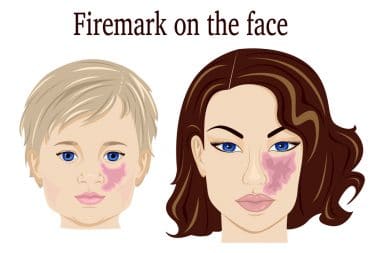People generally think they won’t have an adverse tattoo reaction, and get surprised when they see their tattoo is not healing as directed by their tattoo artists.
Facing swelling or irritation is normal after getting your new tattoo, but some people might develop a tattoo reaction and not just a simple reaction.
Developing a tattoo reaction is something that can cause swelling, itching and puss discharge. Well, generally the allergic tattoo reactions are caused due to certain inks.
Healing the tattoo is a really sensitive process and some mild cases can be treated at home. But if in case the symptoms continue or get more severe, then you require seeing a doctor for diagnosis and treatment.
Anyways, today in this article I will share the complete information related to the allergic reaction of a tattoo.
So, here read the article to find out the symptoms you need to watch for, options for treatment and avoid getting the allergic reaction to a tattoo.
How to Recognize the Tattoo Allergic Reaction?
Getting a tattoo is not painless, people report itching and pain during the healing process. So, it is a bit difficult to diagnose if it is a tattoo reaction that needs additional healing help.
Allergy symptoms of the tattoo vary as per the severity. So here learn how to identify the mild as well as the severe reactions.
Mild allergic reactions can lead to:
- Bumps and rashes
- Flaking of the Skin
- Irritation and redness
- Skin flaking
- Swelling or pus discharge
- Peeling skin around the tattoo
- Skin tags or lumps
Well, severe reactions may affect your entire body. Therefore consult a doctor or the other healthcare worker if in case you experience below given problems:
- Bumpy or hard tissue
- Hot or chill flashes
- High fever
- Pus discharge from the inked area
- Extreme itching or burning sensation around the fresh tattoo
Moreover, if you face swelling near your eyes or face difficulty in breathing then consult a doctor immediately.
What are the causes of tattoo reactions?
Tattoo reactions or allergies are frequently caused due to the elements in tattoo inks, like colors, pigments, or metallic elements.
A few inks currently contain colors produced using similar elements utilized in vehicle paint and business printing. These will all stimulate an immune reaction as your body tries to eliminate the ink.
Tattoo ink isn’t controlled by the Food and Drug Administration (FDA), so you might not generally know precisely what is your ink made up of. However, the FDA assembles reports of individuals’ negative reactions to specific ingredients.
Therefore it is ideal to ask your tattoo artists for the inks they will use and search for the ingredients that might cause an allergic or might be archived as conceivably unsafe.
Alternatively, you should also do some research before getting a tattoo, like your tattoo artists must be professional, skin allergies you have, ink and the colors used while making tattoo as well as the rotary tattoo machine used by your artist, here find out some of the best rotary tattoo machines on the tattoolous.com.
Here have a look at some of the ingredients that might cause allergic reactions:
- Aluminium
- Brazilwood
- Aminoazobenzene
- Cadmium sulphide
- chromic oxide
- carbon (also called “India ink”)
- cobalt chloride
- cobalt aluminate
- ferric oxide
- ferric hydrate
- iron oxide
- manganese
- lead chromate
- mercury sulfide
- phthalocyanine dyes
- titanium oxide
- sandalwood
- zinc oxide
These are the ingredients that might cause an allergic reaction. So, you should look for them before getting a tattoo or do some research about the ink used by your artist.
What are the Common Side Effects of Tattoos?
Getting a tattoo is a painful process, but how can you say whether the pain or irritation you’re feeling after getting a tattoo is a normal pain? Awful responses can happen just after you get a tattoo and even a long time later. This is the reason you need to focus on your skin and identify the unfavourably susceptible responses, diseases, and different issues.
Quite possibly the most well-known issue is the allergic reaction to tattoo color. Red tattoo colors are the most common for causing allergic reactions.
In case you get an allergic reaction to your tattoo, you may get rashes that are normally red, itchy or bumpy. These signs can appear in the days after you initially get your tattoo or can seem months or even years later.
Well, the minor tattoo allergic reaction can be treated with the relevant steroid ointment. Despite this, another reason for the swelling and itching is an immune system problem known as sarcoidosis.
It can show up a very long time after you get the first tattoo. Furthermore, even though it does not straightforwardly occur due to the ink, when it starts appearing in the skin, it will in general appear on the tattoo.
And the ointment you apply to your skin should assist the allergic reactions. But if it gets worse, then you may require seeing a doctor immediately for better treatment.
Moreover, it is also important to try your best to prevent getting an allergic reaction and boost the tattoo healing process. Here follow some important tips to prevent allergic reactions to tattoos.
Tips to Prevent Tattoo Allergic Reactions
As said above the best way to minimize the risks is to learn completely about your skin reactions and allergies to the allergens also do the complete research about your possible tattoo maker.
- See if you have any normal sensitivities – If you can, make a meeting with an allergist and enlighten them regarding your past allergic reactions. They might have the option to test the related allergens and assist you with recognizing different triggers or ingredients to stay away from.
- Know if you have any hidden skin conditions – A few conditions, like psoriasis and eczema, are more inclined to adverse effects and reactions. So, if you are suffering from this then must talk to your dermatologist or tattoo artists first.
- Try not to get a tattoo in case you’re sick – A weak immune can make you more vulnerable to allergic responses.
- Ensure you pick a respectable tattoo artist and shop – Go through the accompanying agenda before getting a tattoo
- Follow the advice — listen to your tattoo artists recommendations like avoid wearing tight-fitting clothes, prevent shaving, excess normal water exposure and most importantly do not remove the tattoo wrap too early. Also, eat healthy foods and drinks that include more vitamin C to accelerate the tattoo healing process.








Reply